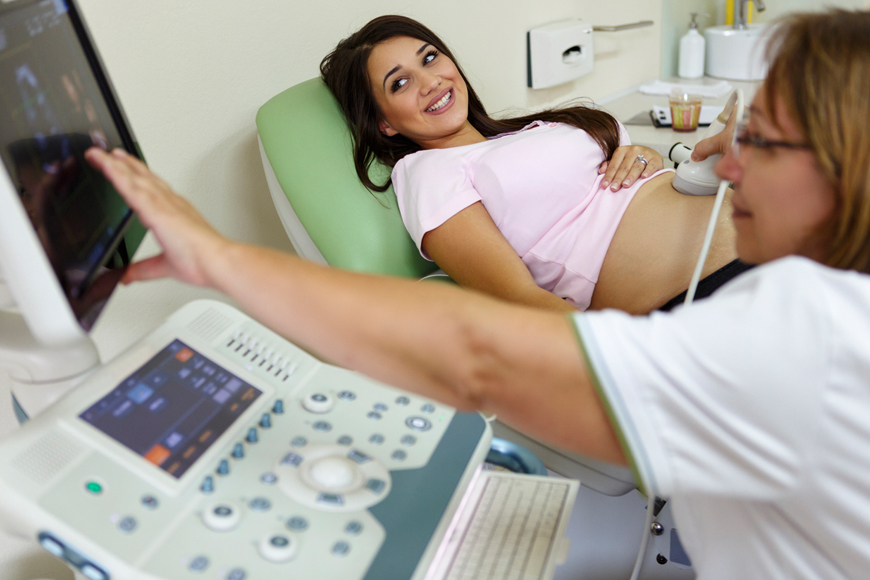Prenatal Tests You Can Have While Pregnant in Dubai
Some are routine, some mandatory and others optional depending on your preferences
25 July 2017

The healthcare industry is highly competitive in Dubai and the UAE, and so it is safe to say you get value for money with whatever maternity package you opt for.
Besides the routine tests (like blood and urine) that every mum-to-be should have, there are a couple that are mandatory for pregnant women in Dubai that aren’t necessarily given in other countries. Plus, there are other tests in Dubai and the UAE that can offer peace-of-mind for any expectant parent while living here.
Let’s look at what prenatal tests you can expect to have or choose before giving birth in Dubai or elsewhere in the UAE.
Blood Tests
Blood tests are taken while you’re pregnant to find out your blood type (A, B, AB or O; Rh positive or Rh negative), whether you have immunity to German measles (rubella), and to find out your haemoglobin levels.
Urine Tests
At every prenatal visit, you can expect to be asked to provide a urine sample. These tests determine the protein levels and sugar in your blood. Sugar levels higher than normal can indicate diabetes during pregnancy, which can be treated. Also – extra proteins in your urine can be a sign of a urinary tract infection (UTI) or a kidney disease that also needs to be treated.
Glucose Test
In the UAE, there is an increased awareness on how to prevent and manage diabetes – and the risk of gestational diabetes is always considered for pregnant women expecting in Dubai. In fact, the Middle East and North Africa region has the second highest prevalence of gestational diabetes in the world. The glucose test is mandatory for all mums-to-be living here, and involves fasting for a period of several hours, and then drinking an orange liquid and waiting up to 2 hours to have your blood drawn to determine the results of the test.
There are other forms of testing for sugar levels, like a urine test or a blood sugar test – so best to speak to your Ob-gyn about what’s available to you.
Chorionic Villus Sampling
This is a prenatal test that diagnoses chromosomal abnormalities or genetic disorders like Down syndrome (trisomy 21) for your growing baby. It is an invasive test, as it takes a sample of the chorionic villus – or your placental tissue), which is then tested with fluorescent in situ hybridization (FISH) or polymerase chain reaction (PCR).
This test can be performed as early as 8 weeks, and is the preferred option before 15 weeks gestation. There is a small risk of miscarriage following this procedure, around 1-2% and there is also a risk of infection and amniotic fluid leakage.
Ideally, only those expectant parents who have a family history of chromosomal abnormalities, had abnormal first trimester screen results, have abnormal ultrasound findings, are known carriers of a genetic disorder or are of an advanced maternal age should opt for CVS.

Amniocentesis (or AFT – amniotic fluid test)
This is a medical procedure used to diagnose chromosomal abnormalities and fetal infections, and also can be used to determine the sex of the baby. A small amount of amniotic fluid is sampled from the amniotic sac, which is then examined – and the most common abnormalities detected are Down syndrome, Edwards syndrome (trisomy 18) and Turner syndrome (monosomy X). The test is performed between 14 and 20 weeks gestation, and the risks include preterm labour and delivery, respiratory distress, postural deformities, fetal trauma and rhesus disease.
NIPT Test (non-invasive prenatal test)
If the above two screening tests and their risks scare you, there is always the option of having a NIPT test done – which is a non-invasive prenatal test that provides no risks to your growing fetus. This test analyses cell-free DNA from your fetus that circulates in your blood; and can be used to detect Down syndrome, Edwards syndrome and Patau syndrome (trisomy 13). NIPT is a highly sensitive and specific test, which just requires a blood sample from the mother.
Maternal Serum Screening
This is a group of tests that are conducted in the second trimester of pregnancy to help evaluate whether a growing baby has Down syndrome, Edwards syndrome, or neural tube defects like spina bifida or a condition called anencephaly. It is usually conducted around the 15th and 20th weeks of pregnancy.
Disclaimer: the information provided in this article is for educational purposes and for guidance only. Please consult your doctor, midwife or Ob-gyn for more information if you are considering any of the above tests.
- Tags:
- prenatal
- Giving Birth
- Pregnancy

























.png?itok=SvZPqMHH)




.png?itok=uB2ieOR7)












